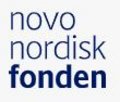Welcome to the ultracold quantum gas research group at Aarhus University!
In our research we investigate the properties of atomic gases at extremely low temperatures. This allows us to get fundamental knowledge of quantum mechanical behaviour in few- and many-particle systems. Click the links below to learn more about our research!
In November, Malthe successfully defended his PhD titled "Spectrally Probing Ultracold Bosonic Clouds"
The assessment committee consisted of Assoc. Prof. David Clément from Institut d'Optique and Patrick Windpassinger from University of Mainz.
Malthe will stay in the group as a postdoc to continue his scientific work!
(11/2025)
In this paper, we review the progress made over the past 30 years in studying the statistical fluctuations of Bose-Einstein condensates. While the mean number of condensed atoms is independent of the choice of statistical ensemble, the microcanonical, canonical, or grand canonical variances differ significantly among these ensembles. Focusing primarily on the ideal Bose gas, we emphasize the inequivalence of the Gibbs statistical ensembles and examine various approaches to this problem. These approaches include explicit analytic results for primarily one-dimensional systems, methods based on recurrence relations, asymptotic results for large numbers of particles, techniques derived from laser theory, and methods involving the construction of statistical ensembles via stochastic processes, such as the Metropolis algorithm. We also discuss the less thoroughly resolved problem of the statistical behavior of weakly interacting Bose gases. In particular, we elaborate on our stochastic approach, known as the hybrid sampling method. The experimental aspect of this field has gained renewed interest, especially following groundbreaking recent measurements of condensate fluctuations. These advancements were enabled by unprecedented control over the total number of atoms in each experimental realization.
The paper is also available on arxiv
(10/2025)
In September Nicolai joined our group as PhD student!
He has previously successfully done his Bachelor project in the group, as well as worked extensively on the student MOT project.
He will join the "Lattice" lab and work towards implementing Lithium as a secondary species besides the existing Rubidium.
CONGRATULATIONS on starting the PhD!
(09/2025)
Our work on three-body physics in the impurity limit has been published in Physical Review A
We have investigated three-body loss processes of impurity atoms embedded in a medium of a Bose-Einstein Condensate close to a Feshbach resonance. The time-dependent number of atoms in the BEC is recorded which allow for a measurement of the three-body loss rate coefficient L3 and its scaling with the impurity-medium scattering length. Moreover, the medium atom number is reconstructed from spectroscopic loss measurements. This allows for a comparison of the medium densities based on both the extracted loss rates and the spectroscopically reconstructed atom number. Finally, the number of lost medium atoms per loss event is evaluated and found to exceed 2 at strong interactions, which is attributed to secondary collisions in the medium. These investigations establish the use of a fast loss mechanism as a new tool in the field and provide quantitative measurements of three-body losses at large interaction strengths.
Our paper is also available on Arxiv here
(05/2025)
Our work on the repulsive polaron has recently been published in Physical Review Research.
We have investigated the challenging many-body problem of impurities in a repulsive bosonic environment. Most strikingly, we observe an oscillatory signal that is consistent with a quantum beat between two co-existing coherent quasiparticle states: the attractive and repulsive polarons. The interferometric signal allows us to extract the polaron energies for a wide range of interaction strengths, and we identify several dynamical regimes towards the formation of the Bose polaron. Thus our results improve the understanding of quantum impurities interacting strongly with a bosonic environment.
Our paper is also available on Arxiv here.
(04/2025)
Our review on polarons in atomic gases and two-dimensional semiconductors is available on arxiv
In this work we provide a comprehensive review of theoretical and experimental studies of the properties of polarons formed by mobile impurities strongly interacting with quantum many-body systems. We present a unified perspective on the universal concepts and theoretical techniques used to characterize polarons in two distinct platforms, ultracold atomic gases and atomically-thin transition metal dichalcogenides, which are linked by many deep parallels. We review polarons in both fermionic and bosonic environments, highlighting their similarities and differences including the intricate interplay between few- and many-body physics. Various kinds of polarons with long-range interactions or in magnetic backgrounds are discussed, and the theoretical and experimental progress towards understanding interactions between polarons is described. We outline how polaron physics, regarded as the low density limit of quantum mixtures, provides fundamental insights regarding the phase diagram of complex condensed matter systems. Furthermore, we describe how polarons may serve as quantum sensors of many-body physics in complex environments. Our work highlights the open problems, identifies new research directions and provides a comprehensive framework for this rapidly evolving research field.
(01/2025)
We are part of the Center for Complex Quantum Systems (CCQ).

We are supported by the Novo Nordisk Foundation within the NERD program.

We are supported by the Independent Research Fund Denmark within the Natural Sciences subject area.

The Carlsberg foundation.